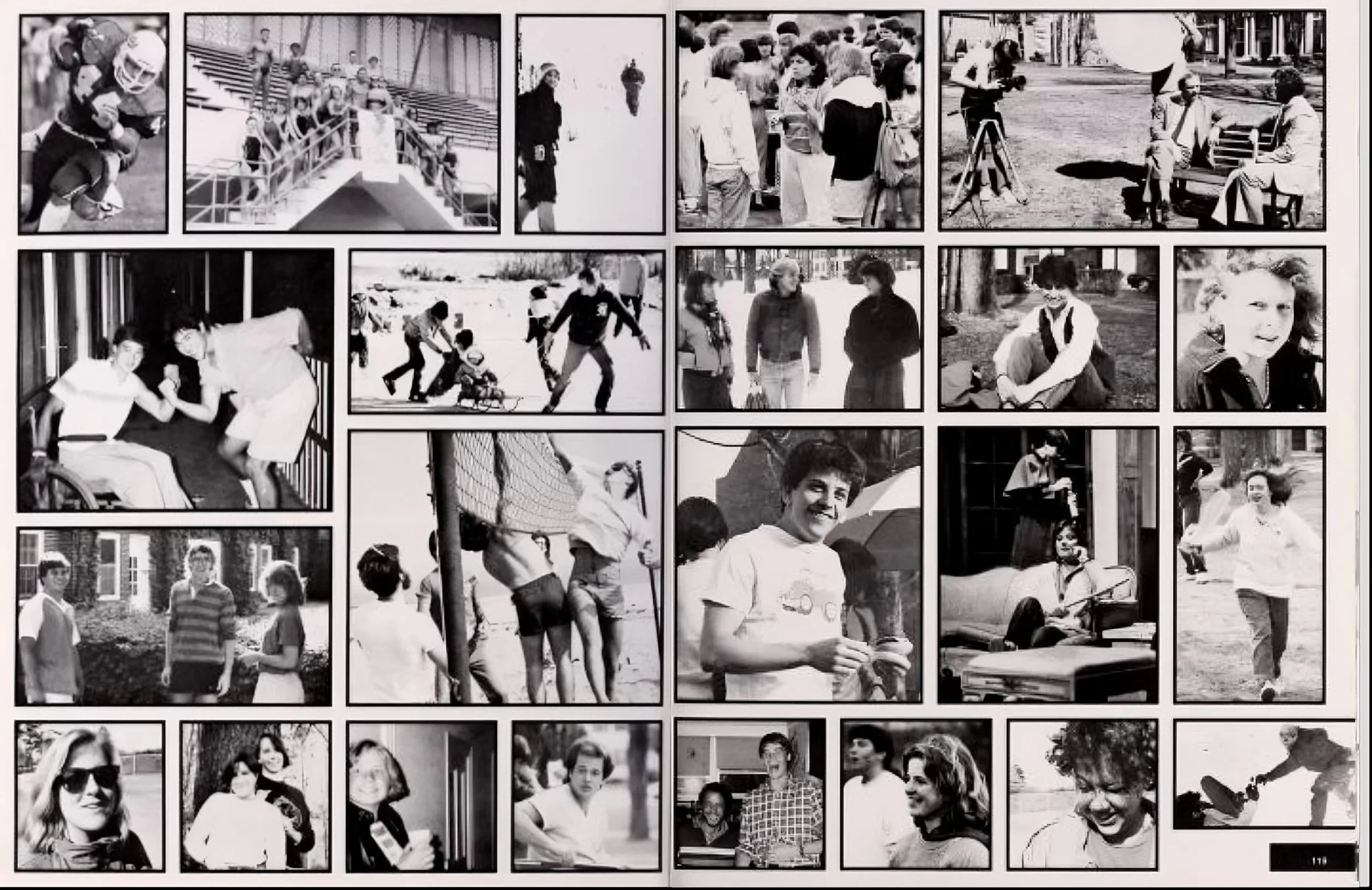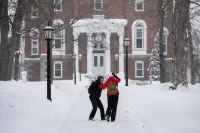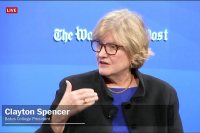
More than 80 percent of college graduates say it’s important to derive a sense of purpose from their work, according to a new study by Bates College and the polling firm Gallup — but less than 50 percent actually find such purpose in their jobs.
The discovery of a significant “purpose gap” among college graduates today was among the major findings of “Forging Pathways to Purposeful Work: The Role of Higher Education,” released in a major media event on April 10 at Gallup World Headquarters in Washington, D.C.
Bates-Gallup in the News
Media outlets locally and nationally are reporting findings of the Bates-Gallup study.
Presented to more than 100 attendees at Gallup plus a livestream audience, the morning announcement featured an overview of the report as well as an interview with Bates President Clayton Spencer by Carolyn Ryan ’86, assistant managing editor at The New York Times. Ryan also moderated a discussion among academic and industry experts.
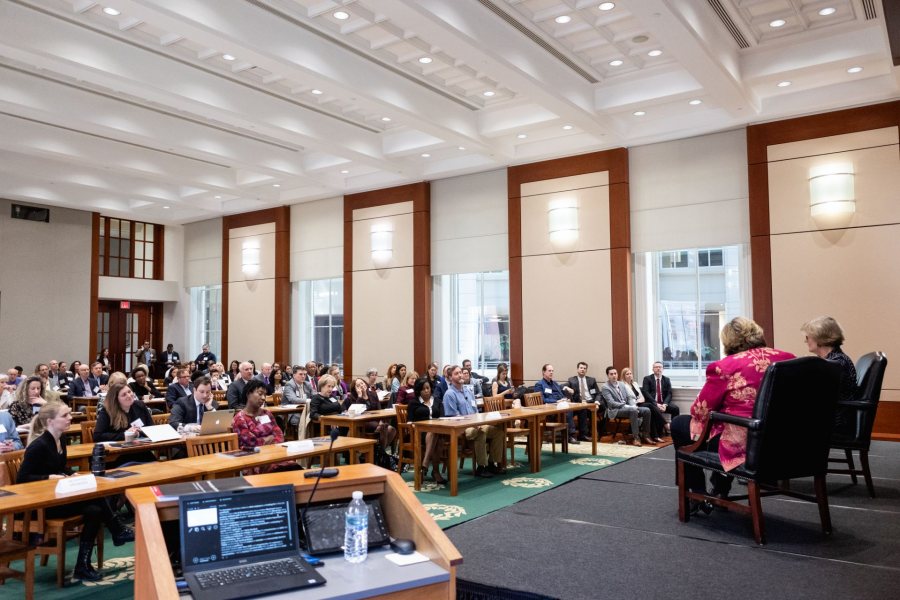
The Bates-Gallup survey was presented to more than 100 attendees at Gallup World Headquarters in Washington, D.C. (Cheriss May for Bates College)
Representing the views of nearly 4,000 respondents, including college graduates, hiring managers, and parents of college students, the report was commissioned by Bates as a way to test the premise of the college’s Purposeful Work program: that helping students find purpose in work allows them to achieve agency, adaptability, and, ultimately, a sense of well-being and meaning in today’s world.
The so-called purpose gap between what graduates seek and what they are finding is a problem for both graduates and employers because there is a strong correlation between employees’ engagement in work and an organization’s bottom line.
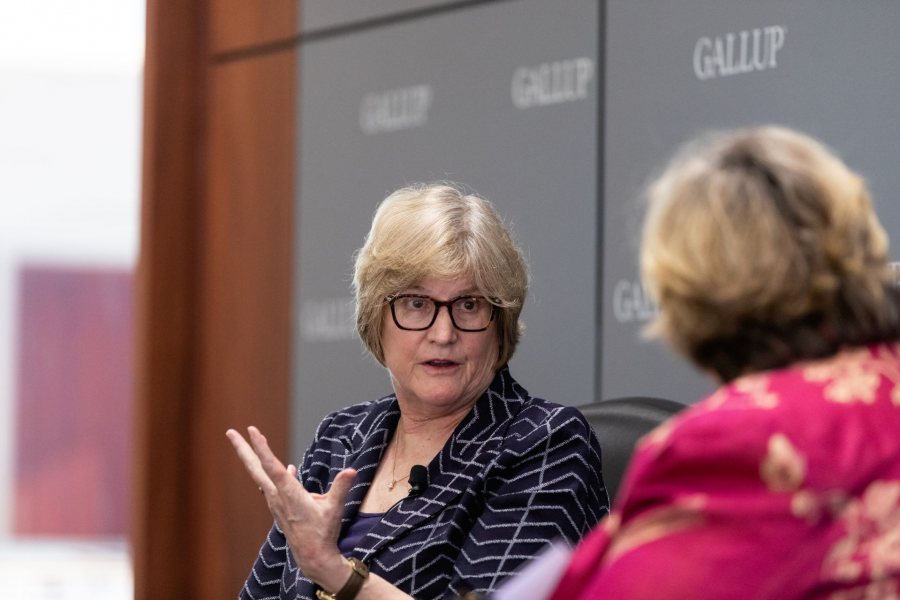
President Clayton Spencer talks about the Bates-Gallup report with Carolyn Ryan ’86, assistant managing editor for The New York Times. (Cheriss May for Bates College)
“We heard overwhelmingly from employers that hiring candidates with a sense of purpose is critically important to them, too,” said Helen Stubbs, a senior consultant at Gallup who oversaw the study.
“Purposeful work is work that aligns how you act in the world with your deepest interests, values, and strengths,” Spencer told Ryan, adding that the key to closing the purpose gap “is to make sure you are producing students who have agency and adaptability throughout a lifetime.”
The report found that the purpose gap is a particular problem for millennials — the largest single segment of the American workforce — because millennials are more likely than older graduates to seek purpose from work than from other sources.
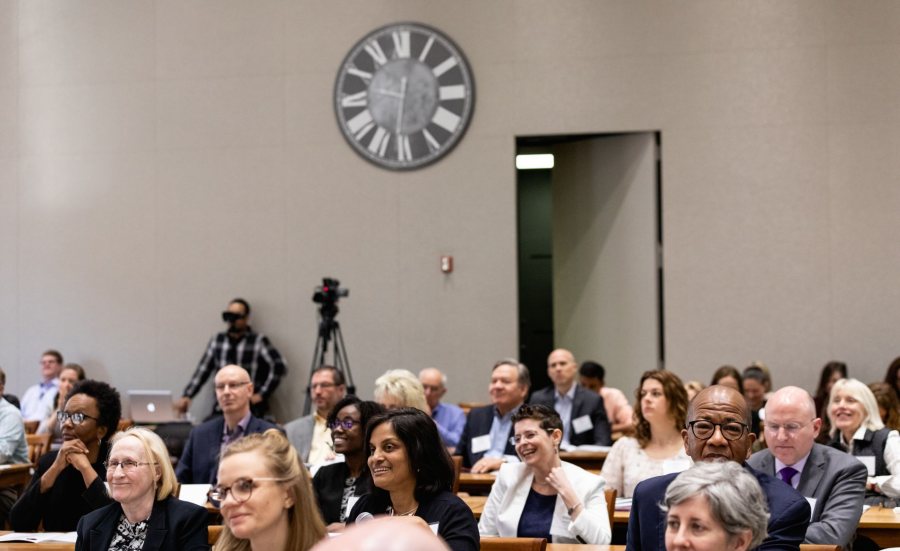
Audience members react during the Bates-Gallup study announcement on April 10 in Washington, D.C. (Cheriss May for Bates College)
The report noted that colleges can provide four key experiences that equip graduates to find purpose in their work by:
- Supporting participation in at least one internship or job;
- Providing mentoring that encourages students’ goals and dreams;
- Promoting realistic expectations for post-graduation employment prospects; and
- Providing courses and programs that help students think about pursuing meaning in work.
The study also makes clear that students should not simply chase jobs or careers that have superficial appeal. Reflection and self-awareness play a vital role in launching graduates into work that will bring them meaning:
- Graduates who align their work with their interests, values, and strengths are roughly three times more likely to experience high purpose in work.
- Graduates with high levels of purpose in their work are nearly 10 times more likely to have high overall well-being than those with low levels of purpose in work.
“Previous Gallup studies have identified the college experience as critical to the path graduates’ lives take,” said Stubbs.
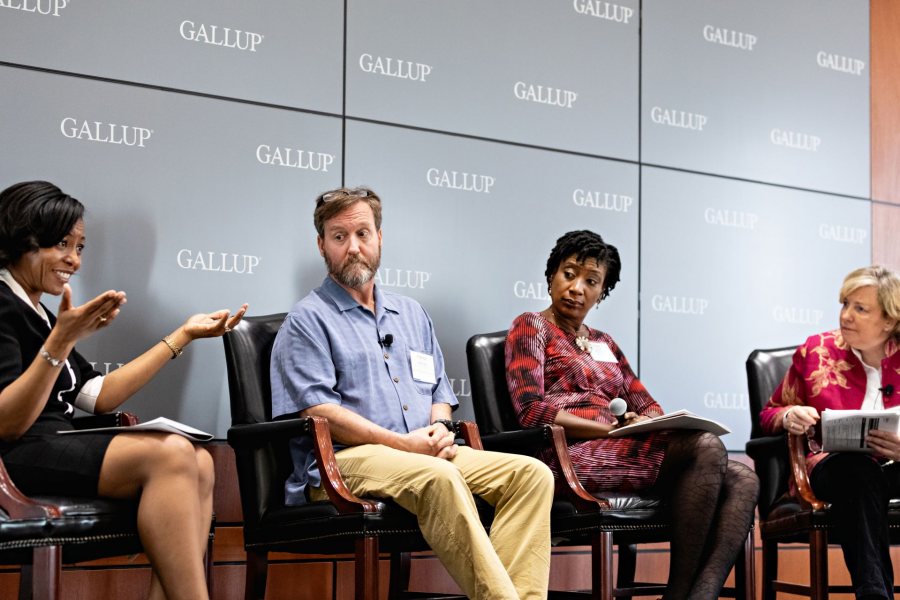
During the Bates-Gallup announcement in Washington, D.C., on April 10, Emily Dickens (left), chief of staff for the Society for Human Resource Management, responds to a question from panel moderator Carolyn Ryan ’86 (right) as Patrick McNight, associate professor of psychology at George Mason University and Nicole Smith, research professor and chief economist at the Center on Education and the Workforce at Georgetown University, look on. (Cheriss May for Bates College)
“Our research with Bates adds a new dimension that elevates the individual’s psychological and emotional alignment with their chosen career path. Where colleges can apply these new findings to their work with students, they stand to accelerate pathways to meaningful work and to produce graduates who are thriving as individuals.”

